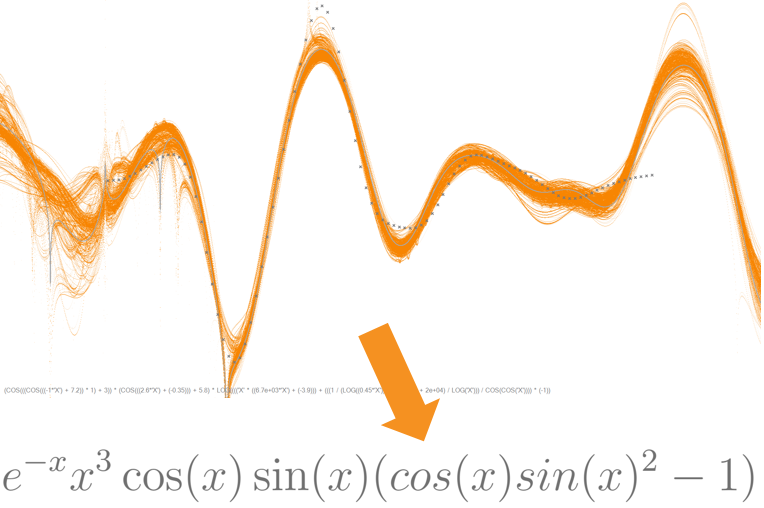What is Symbolic Regression?
The goal of symbolic regression is finding equations that fit data (equation learning). In contrast to other regression methods, the task is not only to identify fitting parameter values for a fixed equation structure, but instead to find the complete equation including fitting parameter values.
Symbolic regression was coined by John Koza in the context of genetic programming (GP). GP is an evolutionary algorithm for symbolic regression. It manages a set of equations (population) and recombines parts from well-fitting equations to produce new equations. This processes is repeated over many generations to produce better and better solutions starting from a set of random equations.


Many different algorithms for symbolic regression have been described as alternatives to GP. One approach that can be useful to find short equations is systematic enumeration of the set of equations as in Grammar Enumeration or Exhaustive Symbolic Regression.